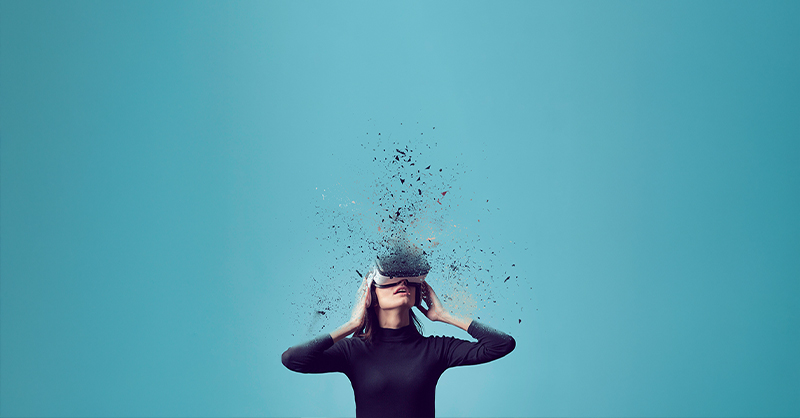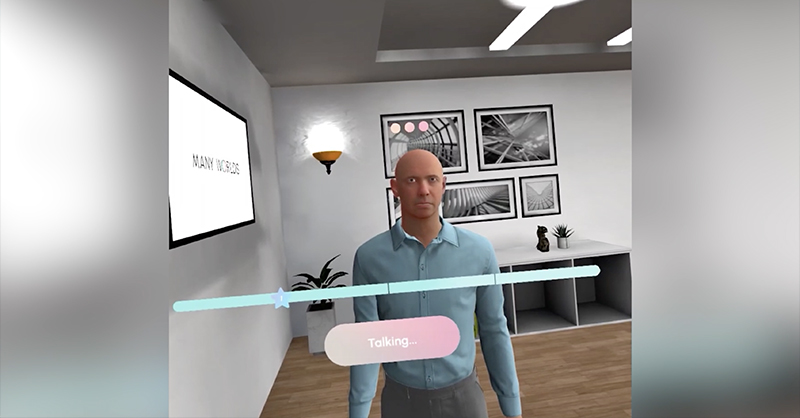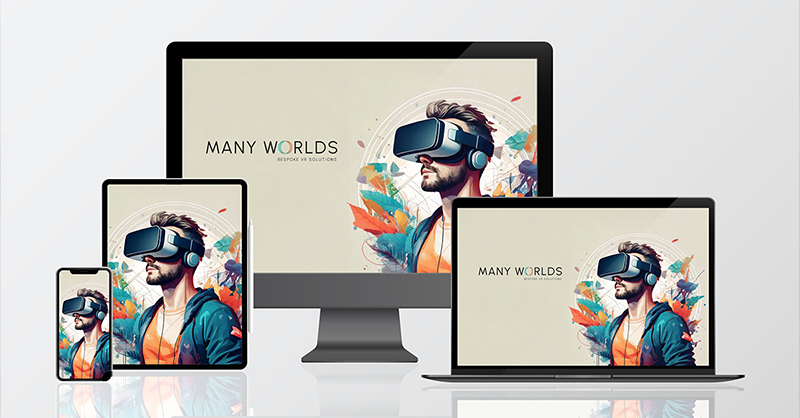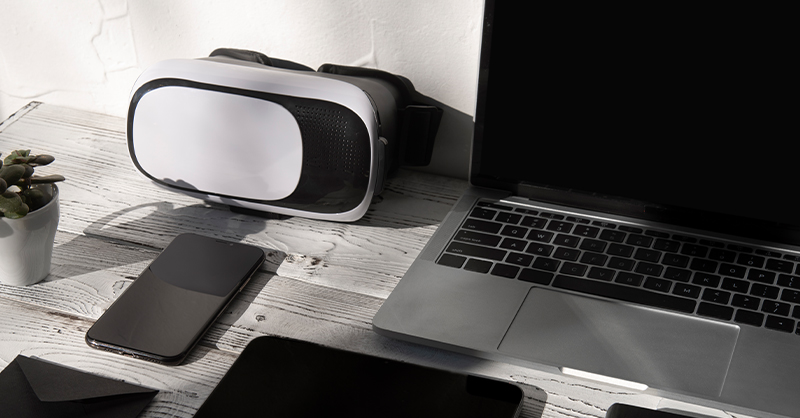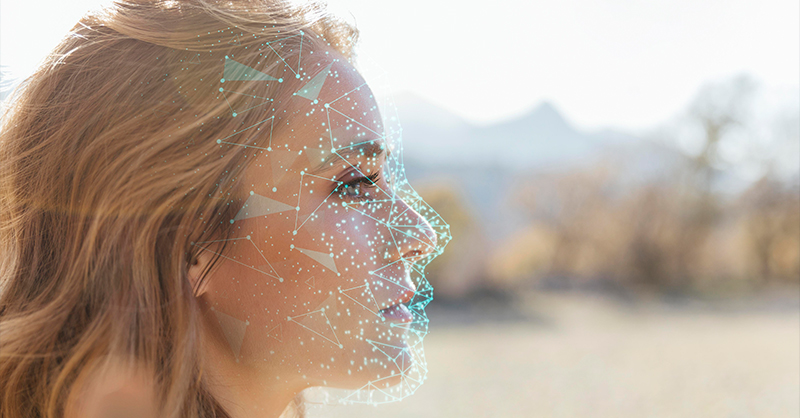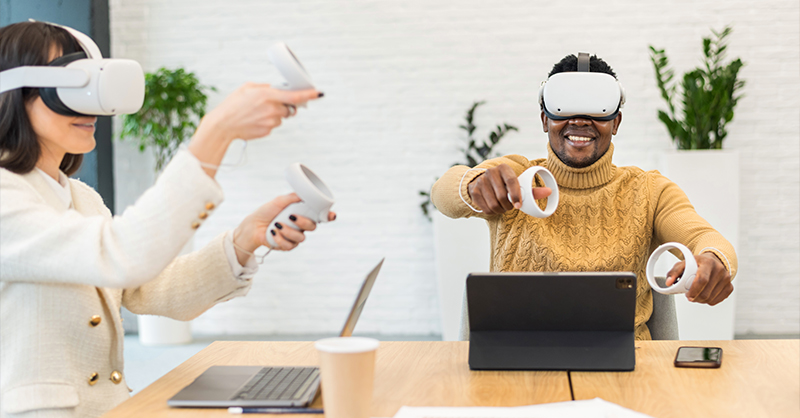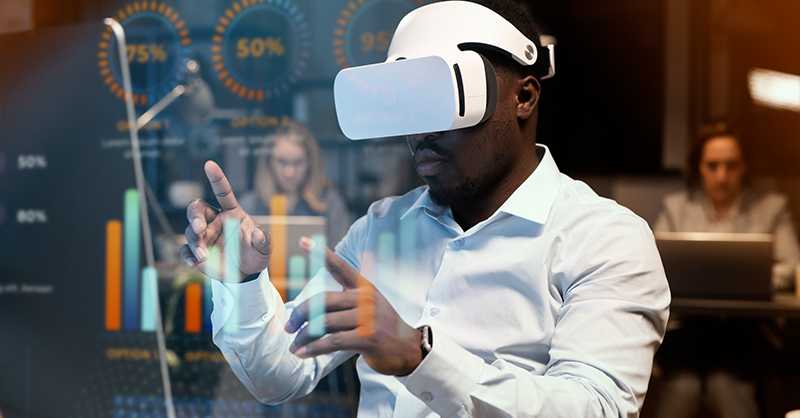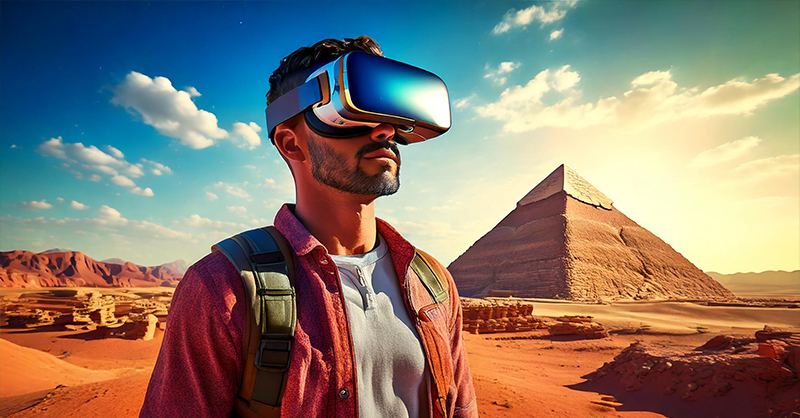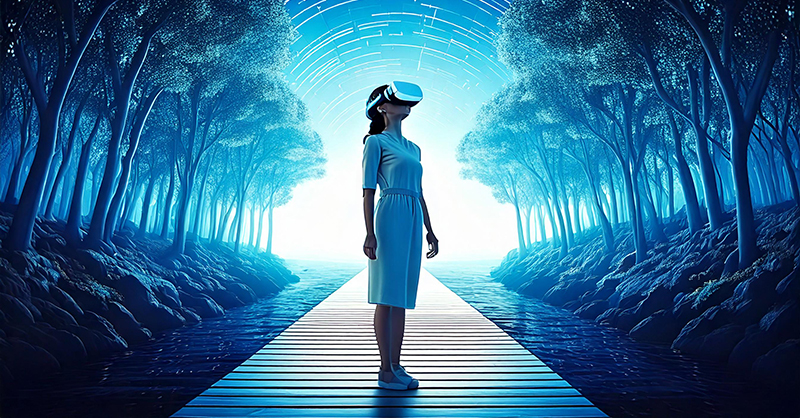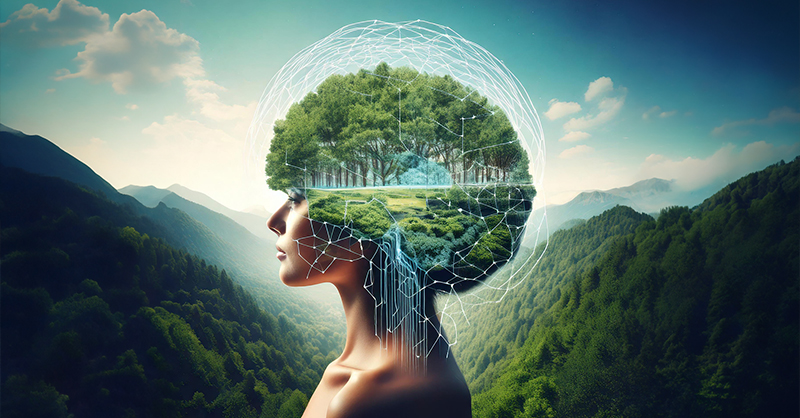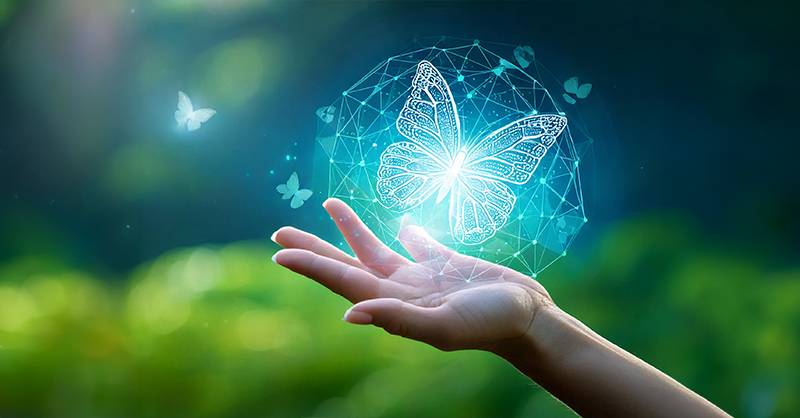What We Do
Step into a world where your people learn faster, lead better, and perform under pressure—without real-world risk.
At Many Worlds, we create fully immersive virtual environments for soft skills training, leadership development, recruitment, onboarding, psychotherapy, sports coaching, and more. Our mission is simple: transform learning and development through experiences that feel real, safe, and endlessly repeatable.
Our flagship products showcase the range and power of what’s possible:
- High-Stakes Client Crisis Simulator – train teams to perform under extreme pressure.
- Job Interview Simulator – perfect preparation for real-world hiring success.
- Active Listening VR Simulator – build empathy and communication in immersive virtual reality.
Every interaction is tracked and analysed through our central dashboard, giving you real-time data collection, analytics, and reporting—so you can see exactly how your people grow and where interventions are needed.
Whether you need a VR headset, desktop, browser, or mobile solution, any corporate or training scenario can be simulated and customised to your unique needs. From onboarding and performance coaching to psychotherapy and sports training, we bring learning to life—and measure its impact.
Book a consultation today and discover how Many Worlds can create a world tailored to your people.


